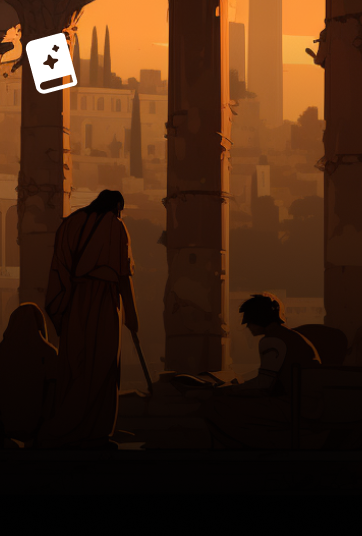

Bladesinger
Ratings1
Average rating2
They are the half-bloods, the broken, the unforgiven.
They failed themselves and their people.
They are outcasts.
Then, in the bitter wilds of Rashemen, they receive a desperate plea they alone can answer.
If they succeed, it could mean their redemption. But if they fail, a troubled past will be the least of their problems.
Reviews
Popular Reviews
Reviews with the most likes.
I kinda liked it, but it was closer to 2.5 stars than 3. It was enjoyable in some ways, but it mostly disappointed me with wasted opportunities.
The most glaring problem, to me, is that this is was part of a series on fighters, focusing on the bladesinger prestige class, yet Taenaran is really a bladesinger - not yet. I did like Taenaran's character, but it's basically a rather formulaic brooding half-elf with a past you can mostly guess at, since he grew up among elves.
The bladesinger is a time-honoured warrior elven tradition, blending magic and steel into a dance of blades. I would've enjoyed reading about a bladesinger at his craft, but the story here is more about how Taenaran finally turns into a bladesinger (read: right at the end). While it's not bad, it's just that I was expecting something entirely different.
Taenaran should have played a more central role, but the plot is basically a D&D module where a party of 4 was thrust into a quest with weak motivations by the wychlaran of Rashemen. The party's leader was the druid Marissa, Taenaran's love interest. She supposedly had a tragic past behind her as well, but it was never really elaborated on. Similar treatment for Borovazk the Rashemi ranger, and Roberc, a dour halfling with a riding dog - hints at something in their past, but it just stops there. It's great that the setting is in Rashemen, and that it involves the witches and vremyonni. That's a solid plus as they are not often in the central theme.
I think it would've worked much better if the party wasn't consisting mostly of outsiders, with weak ties to the land. It would have worked much much better if Marissa was Rashemi herself and not worshipping Rillifane Rallathil. Getting the elven deity of nature involved just feels awkward - especially when the deity is known to be isolationist and usually passive. Such a deity would not be happy with what happened to Marissa at the end, and as such, would not have set her on such a quest.
But get pass the missed mechanics, the weak excuses, and the plot holes, and you actually do get solid writing and a book with good pacing of the action. The fights are fun to read, although it suffers from the typical over-describing of how badly-wounded the characters are and how exhausted they are, yet they continue to fight the next fight as if they were fresh (explained away by magical healing). Go past that too, and the story is not bad - it essentially follows the growth of Taenaran as a broken man haunted by his past, and of how he finally overcame his greatest enemy - himself..
Related Books
Books
7 booksReaders of This Book Also Enjoyed
If you enjoyed this book, then our algorithm says you may also enjoy these.


























